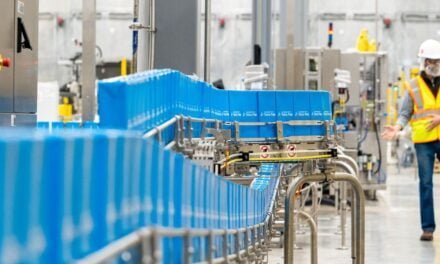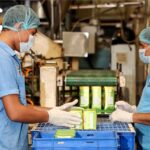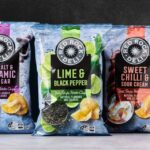Two companies have received the green light to produce and sell lab-grown chicken. However, the jury is still out on how sustainable lab-grown meat really is.
The United States Department of Agriculture (USFDA) approved selling “cultivated” or lab-grown beef to American consumers, paving the way for what manufacturers describe as a new food supply and delivery route.
Upside Foods and GOOD Meat have received approval to begin manufacturing and selling their “cultivated chicken” products, also known as “cultured” chicken, which is made using animal cells grown in a lab to create meat without actually murdering an animal.
According to CNBC, GOOD Meat and UPSIDE Foods have already received their first client orders, and regulators want to begin inspecting cultured meat facilities in accordance with the same health laws and standards that apply to traditional slaughterhouses and meat processing factories.
Companies and supporters in the meat-alternative market applauded the decision, hailing lab-grown protein as a realistic way to solve environmental and ethical challenges associated with traditional meat mass production.

Good Meat launched in Singapore in 2020, when Singapore became the first country to approve the sale of cell-cultivated meat. Now, the United States has become the second.
In a statement, Eat Just, and GOOD Meat CEO and co-founder Josh Tetrick called the approval “a major moment for our company, the industry and the food system” and thanked the FDA and USDA for their “rigour and thoughtfulness.” Meanwhile, UPSIDE Foods CEO and founder Uma Valenti described the decision in a separate announcement as “a giant step forward towards a more sustainable future — one that preserves choice and life.”
Unlike plant-based meat alternatives, cultured meat is made by infusing animal fat or muscle stem cells into a culture medium and then accelerating cell development with a bioreactor. According to the developers, the final product is quite similar to naturally grown and harvested beef when the process is finished.

Although the USDA’s clearance was all but assured when authorities validated UPSIDE Foods’ cultured poultry as safe for human eating last November, the actual go-ahead marks a momentous occasion for the business at a time when consumer interest in plant-based meat products appears to be waning. Since the commercial advent of plant-based meat alternatives, critics have increasingly highlighted the environmental and health risks associated with these products.
Cultured meat, on the other hand, confronts its own barriers to general adoption, including scaling concerns such as financing and developing large enough bioreactors to meet demand. Then there’s the matter of whether lab-grown beef will be more sustainable than present industries—multiple studies in recent years have suggested that such alternatives may even be worse for the environment due to overall energy requirements and greenhouse gas emissions.
Furthermore, production costs suggest that early pricing will stay extremely high. A three-Michelin-star chef and an international restaurateur were among the first customers named for UPSIDE and GOOD Meat.
The traditional method of raising animals for slaughter has several drawbacks. Around a quarter of global greenhouse gas emissions are from food production. A 2021 study found that 57 per cent of food production’s greenhouse gas emissions were from the production of animal-based foods.
According to Upside Foods, the cultivated meat is created in a manner that resembles the brewing of beer, as cells taken directly from animals or their fertilized eggs are grown in large metal drums. Eat Just, the parent company of GOOD Meat, also noted in a statement that they have been selling their “meat without the slaughter” products overseas for three years, saying in part: “We have been the only company selling cultivated meat anywhere in the world since we launched in Singapore in 2020, and now it’s approved to sell to consumers in the world’s largest economy.”
According to the Good Food Institute, an NGO working to advance plant-based and cultivated meats, cell-cultivated meat emits 80 per cent less greenhouse gas than conventional meat production, per Time. According to NPR, supporters of lab-grown meat also say its production doesn’t require antibiotics.

















